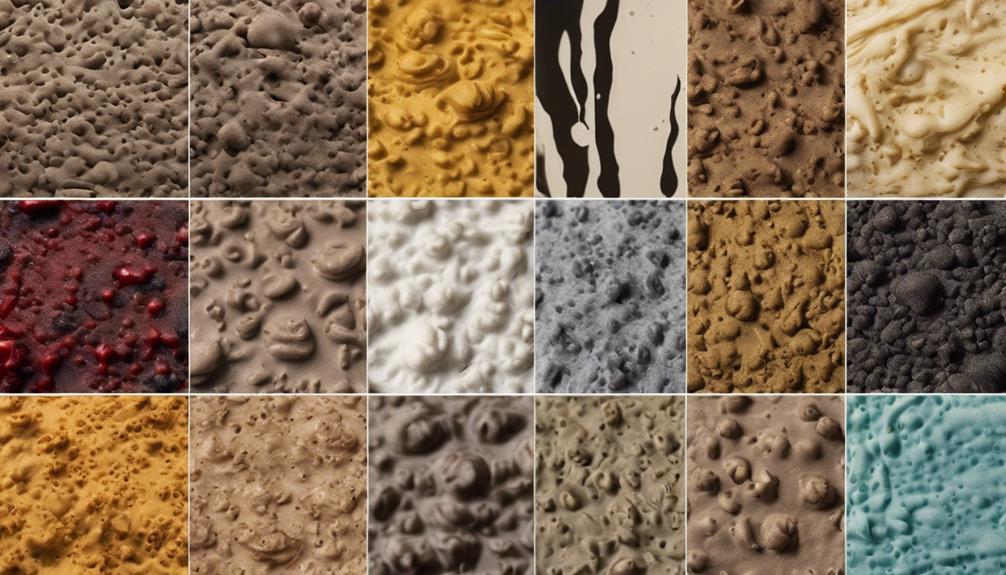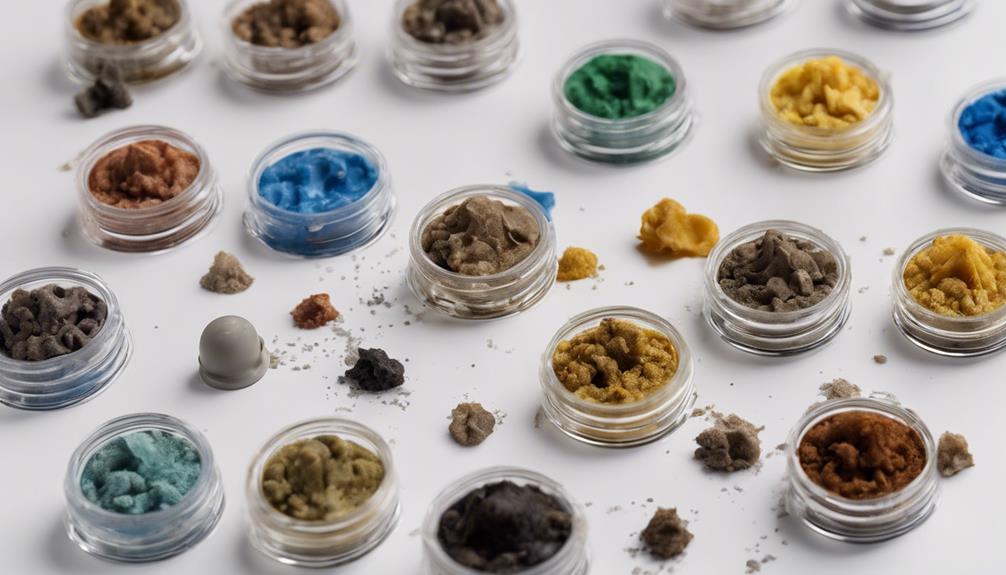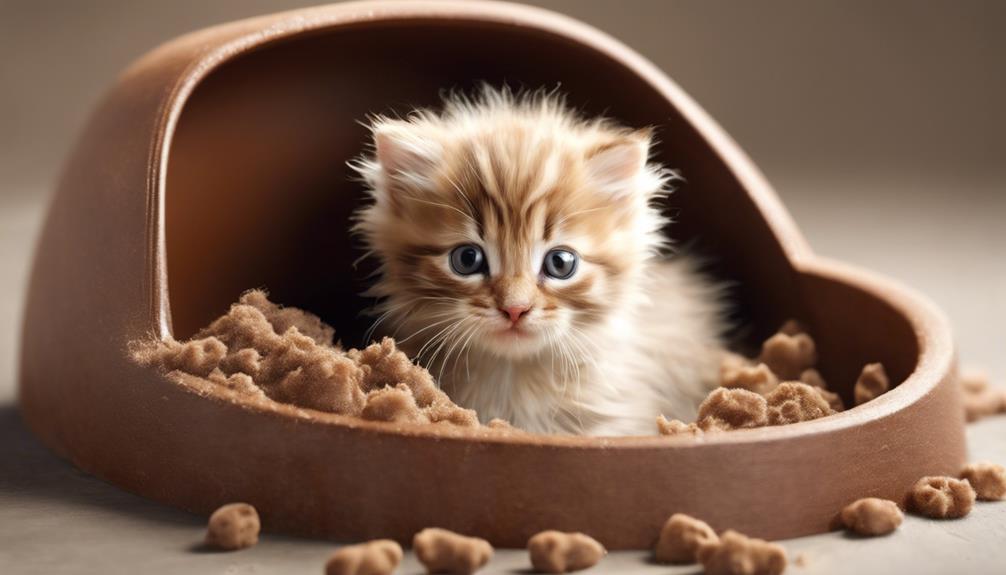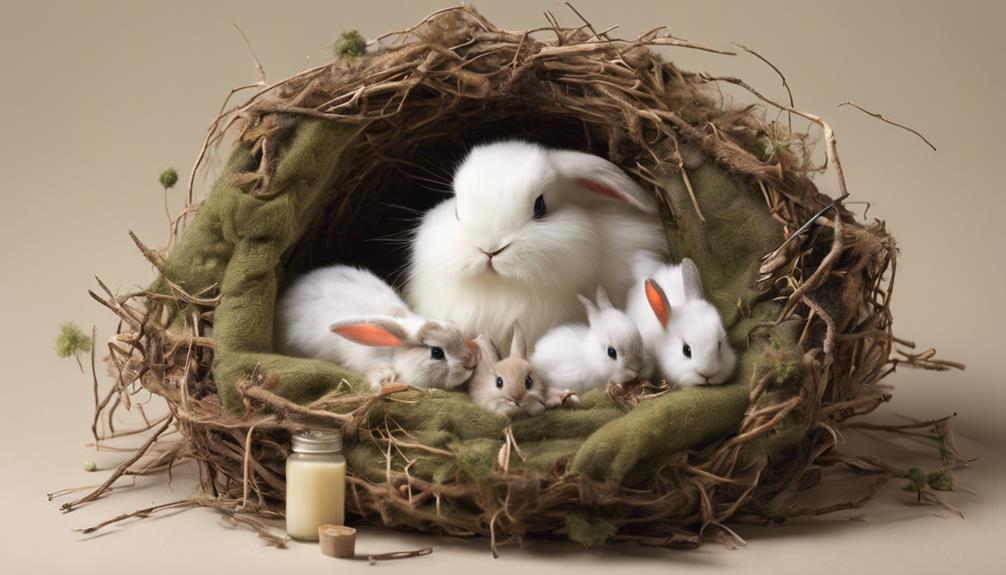As kitten owners, we may be surprised to learn that a newborn kitten can defecate up to ten times a day, making monitoring their poop a critical aspect of caring for these tiny creatures. Understanding the nuances of what is considered normal or abnormal in their fecal matter can provide valuable insights into their health.
By recognizing the importance of newborn kitten poop, we can guarantee that our furry companions are thriving.
Key Takeaways
- Monitor color, texture, and frequency for abnormalities.
- Ensure proper hydration and nutrition for healthy poop.
- Keep nesting areas clean to prevent digestive issues.
- Consult a vet promptly for any concerns about kitten poop.
Understanding Newborn Kitten Poop Color
Understanding the range of colors in newborn kitten poop provides valuable insights into their health and well-being. The meconium, which is a newborn kitten's first poop, typically appears dark and sticky. As the kittens begin nursing, this initial dark color shifts to a lighter shade. It's considered important for their stool to range from yellow to greenish-brown as they grow.
However, any drastic changes in color could signal underlying health issues or dietary adjustments. Monitoring the color of their poop is vital for early detection of potential problems. If there are concerns about the color or consistency of a newborn kitten's stool, seeking medical advice from a veterinarian is highly recommended. Being proactive in observing and understanding these variations can aid in maintaining the well-being of the kittens and addressing any health issues promptly.
Deciphering Kitten Poop Texture

Monitoring the texture of a newborn kitten's poop provides key insights into their digestive health and overall well-being. In the first few weeks of life, it's essential to pay close attention to the consistency of your baby's poop. Normal poop for a kitten fed on formula should be soft but formed, similar to the texture of toothpaste. If you notice that the poop is too watery or loose, it could indicate diarrhea or digestive issues that require prompt attention. On the other hand, if the poop is too hard or dry, it may suggest dehydration or constipation.
Understanding what's normal for your kitten's poop can help you detect any abnormalities early on. Consistent monitoring of your kitten's poop texture is vital for identifying potential health problems and ensuring your furry friend stays healthy and happy. Remember, any significant changes in poop texture should be discussed with your veterinarian to determine the best course of action for your little one.
Monitoring Kitten Poop Frequency
Newborn kittens should ideally pass stool multiple times a day, typically following each feeding, to guarantee proper digestion and overall health. Monitoring your kitten's poop frequency is essential in ensuring they are digesting their food adequately. Healthy newborn kittens may poop anywhere from 1 to 5 times a day. Changes in poop frequency can serve as early indicators of issues like constipation or diarrhea, which require prompt attention. Keeping a close eye on how often your kitten poops allows for the early detection of potential health problems, enabling timely intervention.
| Poop Frequency | Description | Action Needed |
|---|---|---|
| 1-3 times a day | Normal for most kittens | Monitor |
| More than 5 times | Possible diarrhea or overfeeding | Consult veterinarian |
| Less than 1 time | May indicate constipation or health issue | Seek veterinary advice |
Monitoring your kitten's poop frequency is a simple yet effective way to safeguard their health and well-being.
Addressing Concerns About Kitten Poop

If we notice any irregularities in a kitten's stool, it's essential to promptly address concerns about their poop to guarantee their overall health and well-being.
When it comes to newborn kittens, their first bowel movements consist of meconium, a sticky, dark greenish-black substance. This shifts to a mustard yellow color, which is normal for a newborn kitten's poop. Within a couple of days, their stool should start to resemble the typical feces of a healthy kitten.
However, if we observe deviations from this normal progression, such as persistent meconium, unusual colors, watery consistency, or foul odors, it could indicate potential health issues. Changes in diet, presence of parasites, infections, or other underlying problems might be the cause.
Seeking advice from a veterinarian is critical to determine the appropriate steps to address these concerns effectively.
Tips for Healthy Kitten Poop
Maintaining proper hydration and nutrition is essential for ensuring healthy kitten poop. When kittens are first born, their initial bowel movements consist of a dark, tar-like substance called meconium. This is completely normal and is typically passed within the first 24 hours after birth. As the kitten starts to feed, their poop changes to a brown color, becoming firmer and more formed. By the time kittens are around three weeks of age, their poop should resemble that of an adult cat – firm, moist, and well-formed.
To promote healthy kitten poop, make sure the mother cat is well-nourished and hydrated, as these factors directly impact the quality of the kitten's stool. Additionally, keeping the nesting area clean and free of any amniotic fluid or other contaminants can help prevent digestive issues. Regular monitoring of your kitten's poop is important, as any sudden changes in consistency, color, or frequency could indicate underlying health concerns. If you notice anything unusual, it's best to consult with a veterinarian promptly to address any potential issues and safeguard your kitten's well-being.
Frequently Asked Questions
What Is a Healthy Newborn Kitten Poop?
We recognize healthy newborn kitten poop as yellow or brown, toothpaste-like in texture. It should pass effortlessly with a faint sour scent. These signs indicate proper digestion and nutrient absorption. Monitoring these characteristics helps catch health issues early.
How Long Can Newborn Kittens Go Without Pooping?
We're baffled by the idea of newborn kittens holding it in, but if they go over 48 hours sans poop, it's time for a vet visit. Keep an eye on those tiny toots!
How Do You Stimulate a Newborn Kitten to Poop?
To stimulate a newborn kitten to poop, gently massage their anal area with a warm cloth in circular motions after each feeding. This mimics the mother cat's licking action, aiding elimination. Consistent stimulation is important for the kitten's health and digestion.
How Old Do You Have to Help Kittens Poop?
We assist kittens with pooping until they reach around 3-4 weeks. This important care helps them thrive. Providing gentle stimulation mimics a mother cat's natural actions. It's a nurturing practice essential for their well-being.
Conclusion
To summarize, keeping a close eye on your newborn kitten's poop is essential for ensuring their health and well-being. By understanding the various aspects of their poop, from color to texture to frequency, you can address any concerns promptly.
Remember, a healthy kitten poop is a sign of a happy and thriving furry friend. Stay vigilant, stay informed, and enjoy the journey of caring for your precious kitten.









